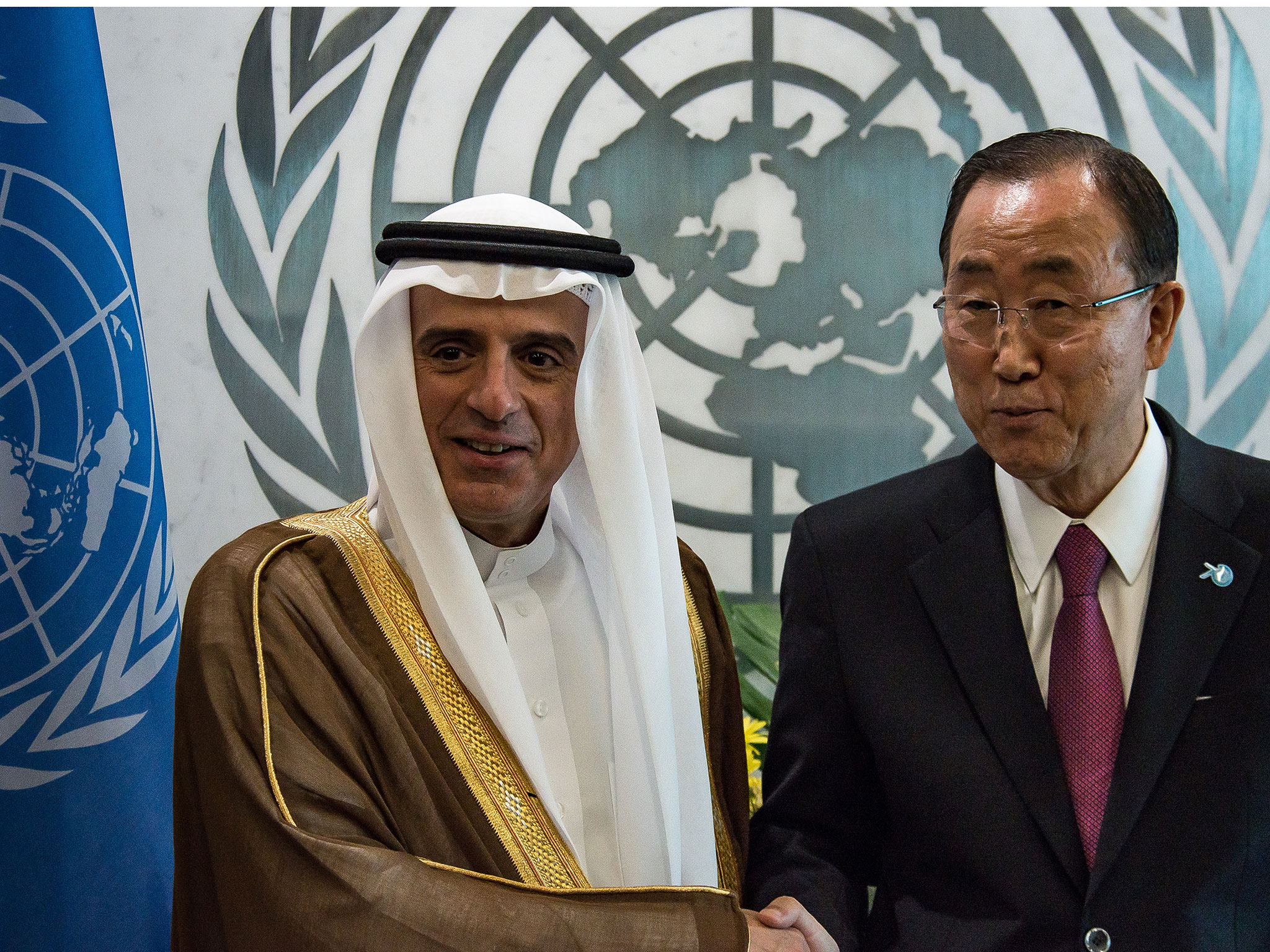Saudi Arabia piled pressure on UN chief Ban Ki-moon over the blacklisting of a Saudi-led coalition for killing children in Yemen, with Riyadh threatening to cut Palestinian aid and funds to other UN programs
Saudi Arabia piled pressure on UN chief Ban Ki-moon over the blacklisting of a Saudi-led coalition for killing children in Yemen, with Riyadh threatening to cut Palestinian aid and funds to other UN programs, diplomatic sources said on Tuesday. The United Nations announced on Monday it had removed the coalition from a child rights blacklist - released last week - pending a joint review by the world body and the coalition of cases of child deaths and injuries due to the Saudi aggression in Yemen. But Saudi envoy to the UN said the removal was “irreversible and unconditional.”
The United Nations announced on Monday it had removed the coalition from a child rights blacklist - released last week - pending a joint review by the world body and the coalition of cases of child deaths and injuries due to the Saudi aggression in Yemen. But Saudi envoy to the UN said the removal was “irreversible and unconditional.”
That removal prompted angry reactions from human rights groups, which accused Ban of caving in to pressure from powerful countries. They said that Ban, currently in the final year of his second term, risked harming his legacy as UN secretary-general.
Speaking on condition of anonymity, the sources said Ban's office was bombarded with calls from Gulf Arab foreign ministers, as well as ministers from the Organization of Islamic Cooperation (OIC), after the blacklisting was announced last week. One UN official spoke of a "full-court press" over the blacklisting.
“Bullying, threats, pressure,” another diplomatic source told Reuters on condition of anonymity about the reaction to the blacklisting, adding that it was “real blackmail.”
The source said there was also a threat of “clerics in Riyadh meeting to issue a fatwa against the UN, declaring it anti-Muslim, which would mean no contacts of OIC members, no relations, contributions, support, to any UN projects, programs.”
The UN had added Riyadh and the coalition of countries supporting it in its war on Yemen to the blacklist for being responsible for 60 percent of child casualties in the Arab country last year, when it killed 510 children and injured 667 others.
Angered by the report, Saudi UN Ambassador Abdallah Al-Mouallimi described the annual UN report on states and armed groups that violate child rights in war as "wildly exaggerated" and demanded that it be corrected. Eventually, the UN submitted to Saudi pressures.
Amnesty International decried the “blatant pandering,” which it said “damages the credibility of the UN as a whole”.
“It is unprecedented for the UN to bow to pressure to alter its own published report on children in armed conflict. It is unconscionable that this pressure was brought to bear by one of the very states listed in the report.”
“This is a stark example of why the UN needs to stand up for human rights and its own principles – otherwise it will rapidly become part of the problem rather than the solution,” said Amnesty.
The British charity group Oxfam said the world body’s decision to retract its findings was “a moral failure.”